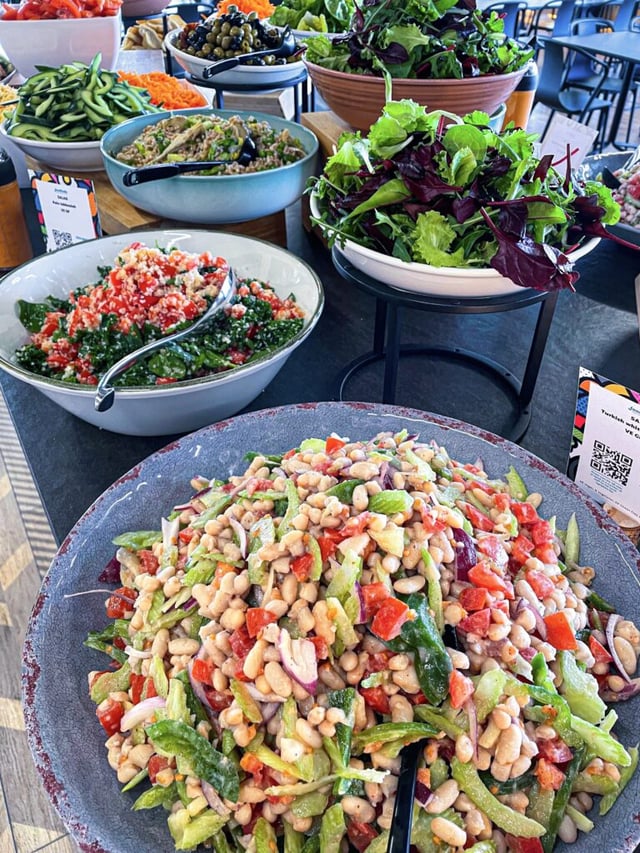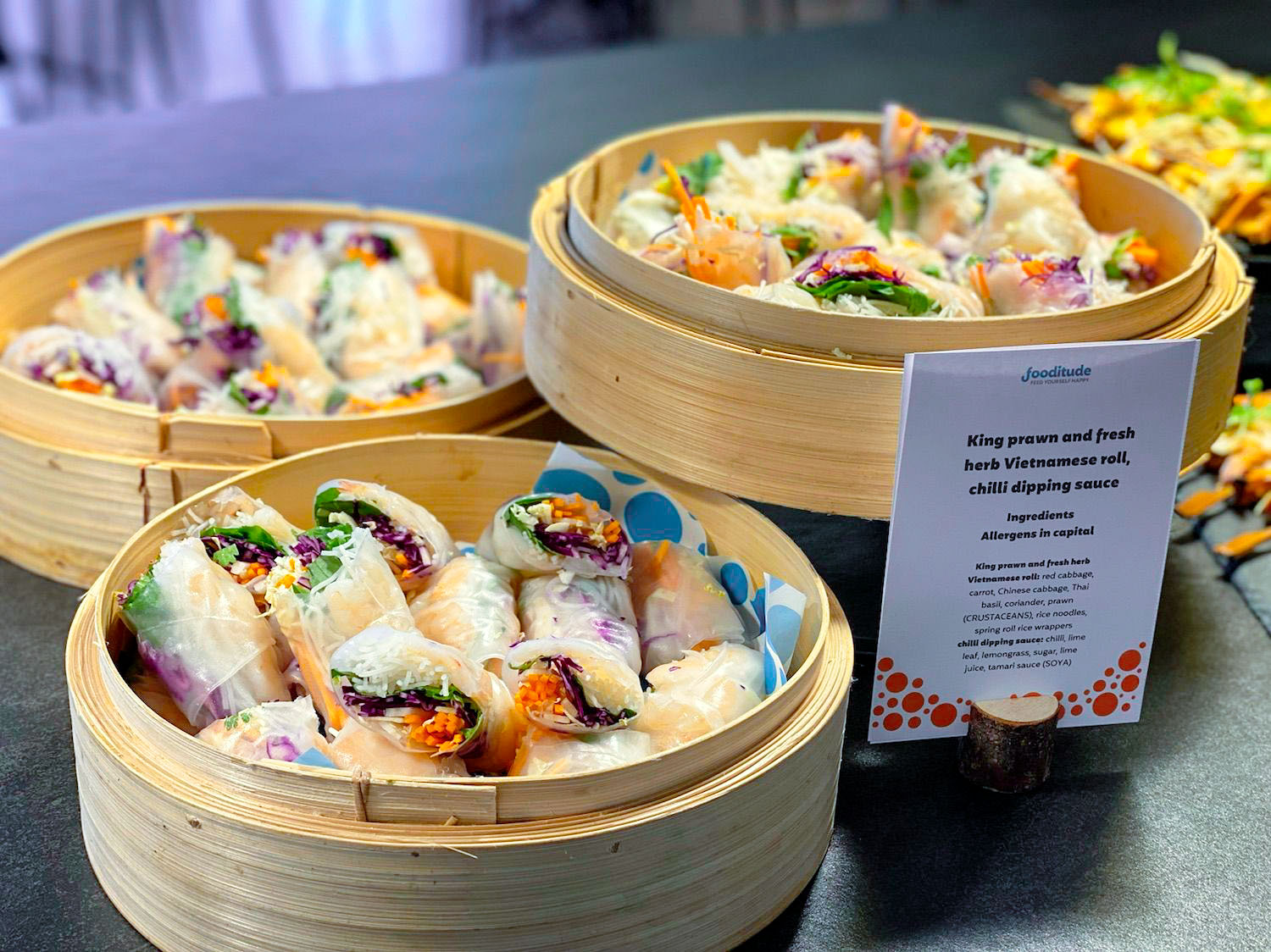As a workplace or facilities manager responsible for your business’s catering, how many of these concerns do you recognise?
- Do you have a large, underused kitchen that’s taking up valuable real estate in the office and no longer works for your post-pandemic needs?
- Are you facing increasing budget constraints or, given the current economic climate, a business-wide hesitation to make long-term financial commitments?
- Does your current food caterer operate within rigid parameters and lacks the innovation you need to keep your menus fresh and exciting?
- Do you have a poor or strained relationship with your current caterer, either through a lack of contact or simply feeling that you are always the one expected to provide engaging new ideas?
- Does your current contract catering service provide food that is just not worth visiting the office for?
Challenges associated with traditional contract catering services can have a huge impact on London businesses, affecting everything from morale, retention, and company culture through to overall financial performance. That’s why it’s vital to get the best possible food programme in place. Because the impact is felt well beyond the dining area.
In this article, we’ll look at the most common reasons you might have for reassessing a contract catering approach, and then discuss the types of challenges you might have already experienced. Finally, we’ll show you how Fooditude’s unique method solves them at speed.
Typical reasons for reassessing a contract catering approach
Changing your catering set-up isn’t straightforward. But there are certain times when it becomes a necessity. From speaking with businesses across several industries, we hear many common reasons that prompt them to look for an alternative to traditional contract catering services. These include:
- Signs of a possible recession initiating budget reviews (including assessments of investments in large-scale in-house kitchens) and overall analyses of the company’s financial health.
- Wanting flexibility, innovation and scalability in their food choice and operations.
- Wanting a stronger relationship with their catering manager, which creates more open communication and reduces the chance of breakdowns in the relationship.
- Wanting to ensure any external caterer delivers a smooth, efficient service and minimal workplace disruption.
- Wanting food that’s so good, it builds company culture, team spirit, and gets hybrid employers excited about days in the office.

The common challenges of traditional contract catering services
Contract catering services are stuck in an outdated operating model. Whilst traditional caterers might provide a passable service, it increasingly disappoints workplace and facilities managers who know the quality, atmosphere and vibrance of their workplace has a direct impact on their company’s ability to recruit and retain the market’s very best talent. For businesses looking for flexible, reliable contract and corporate catering solutions, Fooditude delivers high-quality meals and exceptional service that enhance office culture.
However, things are slowly changing, with an innovative model – delivered-in catering – altering the nature of food in the workplace and solving several challenges at once. This disruption is sweeping across London, with firms quickly feeling the benefits after making the switch.
Fooditude is one of the leaders in this delivered-in catering model. Here’s how our model helps resolve the common challenges you might already be battling:
Costs
Traditional contract catering services typically require businesses to agree to longer-term fixed contracts. A longer-term deal gives traditional caterers the reassurance they need to provide the equipment and the labour. If it soon becomes clear that the service is not matching with your expectations, this can put you in a difficult and challenging position.
There are other financial considerations beyond the contract, too. In today’s financial landscape, space is money. Making ongoing payments for the extra space needed to house a kitchen (which will also have high operational costs and may be closed more than it’s open) may not be a prudent decision.
The kitchen space, if removed, can also be repurposed to enhance workplace wellness, such as a breakout space or an extension for a more roomy dining area. By removing the kitchen, you can use the area in other ways that provides your company with greater value.
The Fooditude Solution
Fooditude removes these challenges. Flexible contracts that can be scaled up and down as required are standard. Everything is prepared fresh in our centralised kitchen, meaning all the issues of an on-site kitchen are removed. Furthermore, you could even improve your company’s financial position by giving up the space you’re currently using on that underused asset. Our clients consistently find the ease, quality, and reliability of our operations completely freeing.
Flexibility
Contract catering services rarely provide any flexibility in their systems. Your investment has to stretch to a kitchen, catering contract, and ongoing labour. None of that can be altered easily should your circumstances change. Many contract caterers would be actively reluctant to agree to any kind of scaling down.
An on-site kitchen can also restrict your options for improving team culture when people are in the office.
The Fooditude Solution
In contrast, Fooditude makes flexibility a central part of its operations. Each week, we can be flexible with your head count, dietary needs, and levels of service. We also take care to ensure our menus are consistently fresh and engaging. Several of our clients have grown from an initial order of a few sandwiches a week to three courses and snacks every day. Whatever you need, we’re able to adapt accordingly.
Innovation
We’ve heard workplace experience managers dealing with traditional contract caterers often feel there is a lack of innovation coming from their traditional caterer.
Frustrated workplace managers are left questioning why they – rather than their paid caterer – are coming up with new ideas to keep their food offering attractive.
The answer is depressingly straightforward: most catering managers are simply too busy (with budgets, team management, recruitment, training, and more) to give you the dedicated time you need. So, there is only minimal opportunity to innovate and ideate to create fun experiences for your team.
The Fooditude solution
Fooditude operates under a different model. With all admin, finance, planning, sourcing, and food preparation conducted through our central operations, our catering managers are free to focus exclusively on your customer experience. There is no burden of paperwork, giving them the space and time to listen to your needs and work collaboratively to produce exciting menu concepts and experiences.
Relationship management
Relationship management can be a challenge for contract caterers because their operations teams normally oversee several contracts. As a result, you can be left feeling that your operations manager isn’t investing enough in your particular business; working with their catering manager to bring you the best service.
This can soon lead to potential friction and dissatisfaction. As a workplace or facilities manager, you want the best for your company and employees. But with a contract catering service, you can start to feel that you’re operating with both hands tied behind your back.
The Fooditude solution
At Fooditude, things are different. Our catering and operations managers invest in face-to-face relationships that build the trust you need to feel safe in your catering agreement. Our operations managers visit our client sites at least once a week to catch up with their teams. They also plan monthly meetings and quarterly business reviews with their clients. In general, our operations managers cover 5 or 6 client sites whereas traditional contract caterers might have operations managers covering 20 to 30 sites.
Labour
With hybrid working, on-site staff numbers can be considerably lower on Mondays and Fridays. For companies tied to inflexible contract catering services, this can lead to unjustifiable spend on unneeded catering staff.
The Fooditude solution
Fooditude’s team is only ever on site when needed. If you only need a lunch service then our team will only arrive in time to set up for lunch, serve, and clear down service. If you want a more fully-managed operation, we can do that too. We can scale our labour up and down as you need it. Additionally, you’ll always have the same driver and front-of-house staff, giving your employees the chance to develop relationships with them.
Due to our unique logistics model, we don’t regenerate food on your premises, so you don’t need chefs in your office. Your food will arrive hot, fresh, and ready to be served. In fact, our expertise and proven capabilities helped us recently win back an old client when they realised their new catering company couldn’t execute on a ‘delivered in’ model.

It’s time to say goodbye to traditional contract catering services
Poor contract catering services are hampering businesses large and small in all areas of London. Restrictive contracts, poor customer service, an inability to scale up and down as required, and lacklustre food all contribute to workplace and facilities managers feeling there must be a better option.
Today, that option is becoming increasingly clear. With flexible contracts, central food preparation and admin, regular face-to-face contact with catering managers, and consistently fresh and engaging menus, Fooditude is helping London businesses to unlock lower costs, improved team morale, and better workplace relationships.
Contact us today and see what’s possible.




